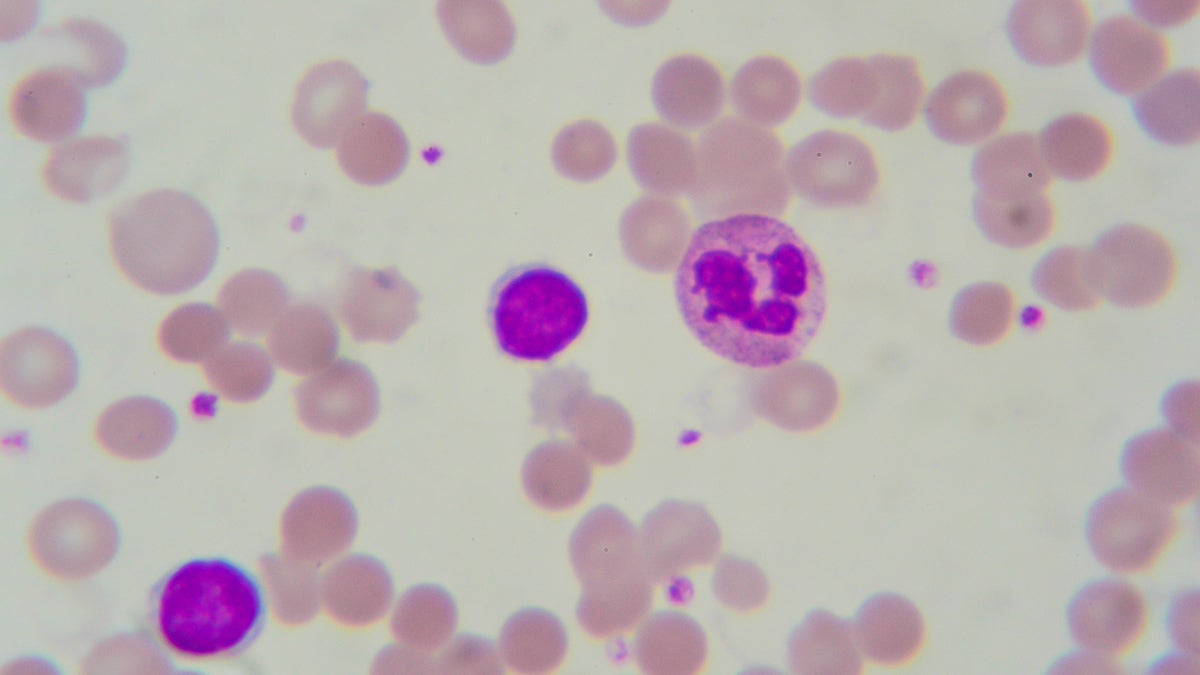FDA designates Novartis-Penn leukemia treatment as ‘breakthrough therapy’
 Photo via ShutterStock) " title="sslukemia2x1200" width="1" height="1"/>
Photo via ShutterStock) " title="sslukemia2x1200" width="1" height="1"/>
A blood smear with Neutrophil and Lymphocyte leukemia, magnified 1000 times under a microscope (Photo via ShutterStock)
University of Pennsylvania researchers working with Novartis on a new way to treat leukemia have heard good news from the Food and Drug Administration.
While still early in the testing process, their method of reprogramming a patient’s own T cells to then fight off cancer has been designated a “breakthrough therapy.”
The FDA offers that status only to treatments for serious or life-threatening diseases with pilot studies suggesting they might offer substantial improvements over existing ones.
The designation should help expedite the approval process, said David Porter, director of the University of Pennsylvania’s Blood and Marrow Transplantation Center.
“It allows us to work more collaboratively with the FDA so that the trials can be done efficiently so there can be proper and early oversight,” he said. “Hopefully, it will be on a more rapid path to approval in the future.”
The gene therapy approach involves removing T cells from a patient, modifying them genetically to target cancerous B cells, and injecting them back in the body.
“Once in the patient, these cells are alive and they have the ability to grow, proliferate, and expand to potentially very high levels, allowing them to kill many leukemia cells in the body,” said Porter, who had led some of the early clinical trials.
According to Porter, about half of patients with hard-to-treat CLL, a chronic form of leukemia, respond to the therapy with half going into remission. Normally, patients with leukemia who have been unable to get better on traditional chemotherapies or bone-marrow transplants are usually are out of options.
For children and adults with ALL, an acute form of the disease, the results have been even better.
“Ninety percent of these patients have gone into complete remission,” said Porter. “There’s just no precedent for anything like this in leukemia therapies.”
Not all patients remain in remission, and the treatment process can involve a dangerous reaction when the immune system kicks into overdrive following the T cell transfer.
But Porter said the possibility of an effective cure for patients for whom no treatments were working is substantial progress.
If the rest of the clinical trials go well, Porter said approval could be as soon as 2016.
The technology for the treatment has been the subject of ongoing litigation between the University of Pennsylvania and St. Jude Children’s Research Hospital.
WHYY is your source for fact-based, in-depth journalism and information. As a nonprofit organization, we rely on financial support from readers like you. Please give today.

